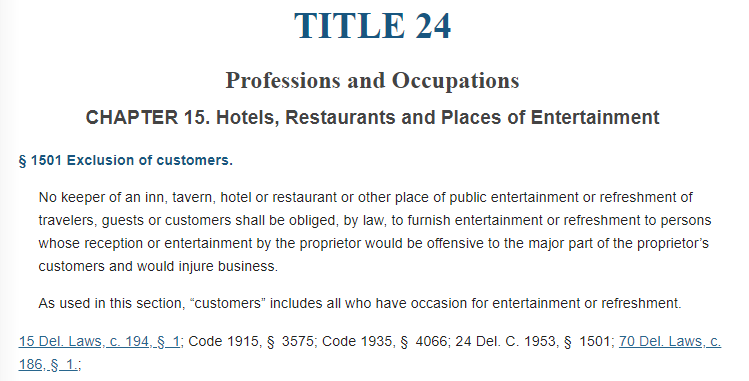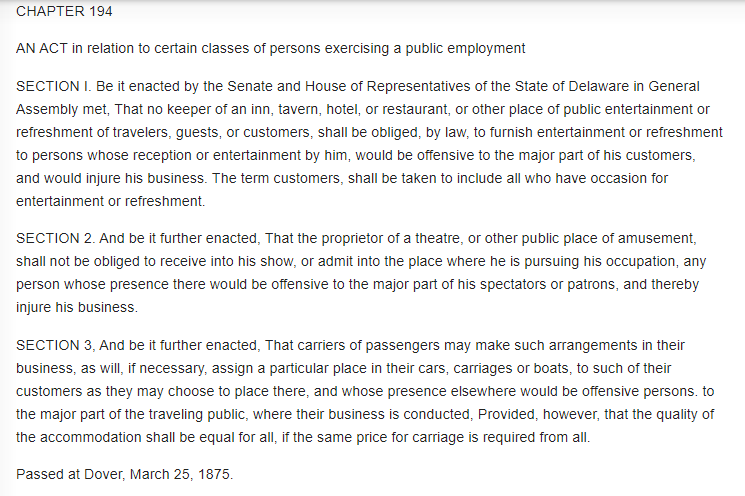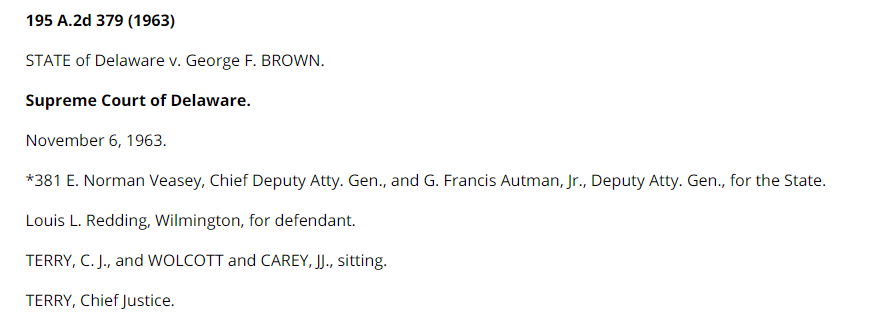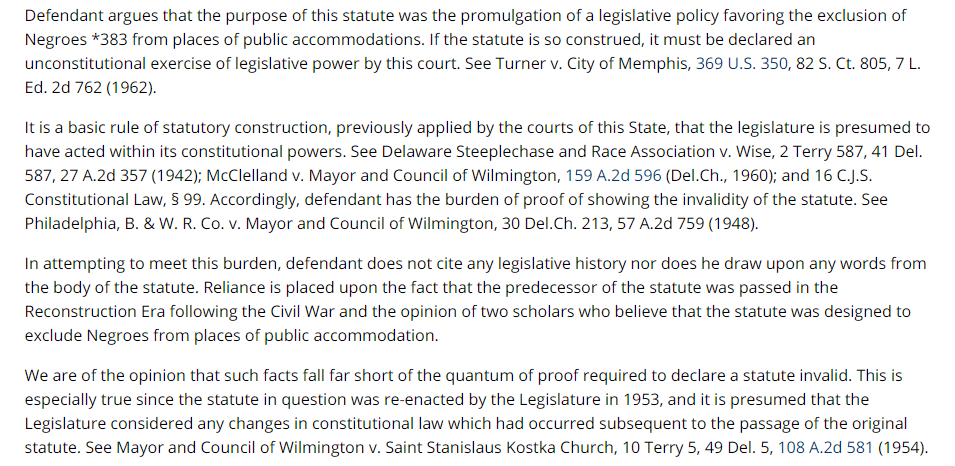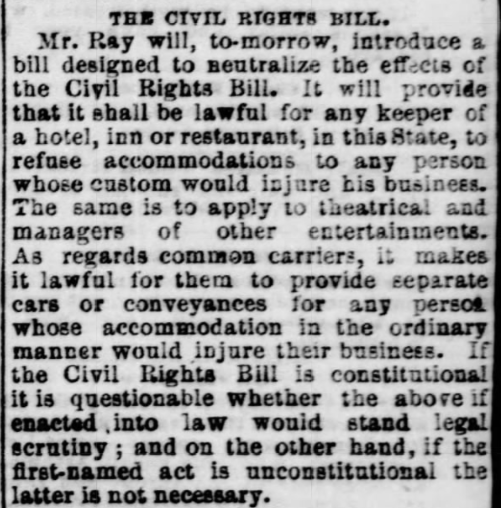If the state of Delaware wants to remove a racist relic, it should repeal two laws still in the Delaware code which served as the foundation of segregation in Delaware.
24 Del. Code 1501 allows owners of hotels, taverns, restaurants and other places of public accommodation to exclude any customer who "would be offensive to the major part of the proprietor’s customers and would injure business."
28 Del. Code 902 allows the proprietor of a "theatre or other public place of amusement" to do the same.
These 2 code sections were originally passed March 25, 1875 along with a third section, which has been repealed, that allowed carriers of passengers to segregate passengers who "would be offensive persons to the major part of the traveling public."
This 1875 Act was passed to enable segregation and to keep African-Americans from using theaters, hotels, restaurants, and other public accommodations in Delaware until the passage of the federal Civil Rights Act of 1964.
In 1963, Rev. George F. Brown was arrested for trespassing while trying to integrate the Deer Park Tavern in Newark. His case went to the Delaware Supreme Court.
Chief Justice Terry ruled against him, finding that the defense had not proved that the original purpose of the statute was to discriminate against African-Americans. This is frankly, some hot legal bullshit.
Delaware's public accommodation law was passed in response to the federal Civil Rights Act of 1875. https://en.wikipedia.org/wiki/Civil_Rights_Act_of_1875
The Federal Civil Rights Act was signed into law on March 1, 1875. The Delaware Act was introduced 10 days later and was described by the Wilmington Every Evening as "a bill designed to neutralize the effects of the Civil Rights Bill."
Delaware was not the only state with these laws. Though other states seem to have repealed them. (I didn't look at all of them).
This list is from Travelers, Strangers, and Jim Crow: Law, Public Accommodations, and Civil Rights in America by A. K. Sandoval-Strausz, which I recommend if you want an in-depth history. https://www.jstor.org/stable/30042844

 Read on Twitter
Read on Twitter